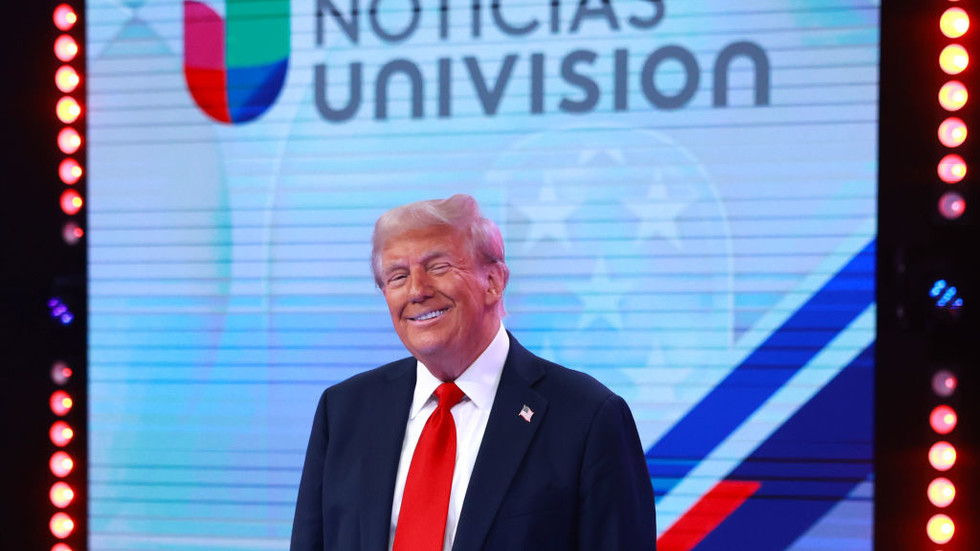In a recent interview with Bloomberg Television, American billionaire investor Stanley Druckenmiller articulated a strong belief that the financial markets are indicating a preference for Donald Trump as the frontrunner in the upcoming U.S. presidential election. As the founder of the Duquesne Family Office and a noted hedge fund manager, Druckenmiller pointed to various indicators, including the performance of bank stocks and cryptocurrencies, which he sees as echoing a bullish sentiment for Trump. He mentioned that over the past 12 days, the clarity of this trend has become increasingly apparent, suggesting a robust market conviction that the former president is likely to secure victory.
Druckenmiller, who has significant experience in the investment world, previously managed funds for well-known Democratic donor George Soros for over a decade. His insights into the potential political landscape hint at a skepticism about Democrats’ ability to gain control over Congress. He remarked that it is “extremely unlikely” for Democrats to achieve this outcome, even if Vice President Kamala Harris assumes the presidency. His analysis, however, diverged slightly based on election scenarios; he anticipated potential market troubles lasting three to six months should a “blue sweep” occur, where Democrats take the presidency and both houses of Congress. Contrarily, he posited that a “red sweep,” which entails Republican dominance, is more probable than a scenario where Trump holds the presidency with a Democratic Congress.
Druckenmiller’s commentary also illuminated the tendencies of voters, asserting that individuals who choose to support Trump are unlikely to shift their votes to Democratic candidates in Congress. His observation aligns with broader electoral trends where party loyalty is increasingly solidified among the electorate. Extrapolating further on economic implications, he expressed concerns regarding the Federal Reserve’s monetary policy, predicting a more hawkish stance should a Harris administration take charge. In the face of recent monetary policy decisions, including a controversial 50 basis point rate cut, Druckenmiller described such moves as miscalculations from the Fed, which he indicated could influence market perspectives negatively.
With a commitment to maintaining a cautious outlook, Druckenmiller has positioned his investment strategies to adapt to the prevailing economic conditions. His firm notably placed short bets on bonds after the Fed’s rate cut, which he viewed as a misstep. This decision underscores his belief that the market should recalibrate its expectations regarding the pace and extent of monetary easing. Druckenmiller’s insights reflect a broader sentiment among certain investors, who are wary of how political outcomes could impact market dynamics. The correlation he drew between electoral politics and financial markets highlights the intricate interplay between governance and economic performance.
Anticipating a turbulent political landscape, Druckenmiller’s analysis suggests that investors should prepare for a mixed bag of outcomes depending on the electoral results. The possibility of a Republican-led Congress could create a more stabilizing environment for financial markets compared to a fully Democratic governmental structure, which, according to his projections, might lead to increased volatility and potential economic downturns. The implications of these scenarios point towards significant investor anxiety, with many on Wall Street closely monitoring the unfolding electoral process for cues on future stock performance and monetary policy shifts.
In conclusion, Stanley Druckenmiller’s assertions reveal a deep intertwining of market behavior and political expectations as the U.S. presidential election approaches. His forecasting indicates a prevailing belief among investors that Donald Trump stands a strong chance of winning, which he argues is reflected in the sector performances, notably in banking and cryptocurrencies. As predictions about congressional control and the Fed’s monetary policy add layers of complexity to his analysis, Druckenmiller’s insights serve as pertinent reminders of the volatility and uncertainty that often characterize the relationship between politics and the economy. Investors would do well to prepare for potentially significant fluctuations in market sentiment depending on the outcomes of the upcoming election.

